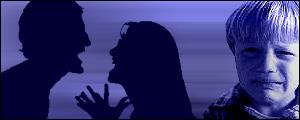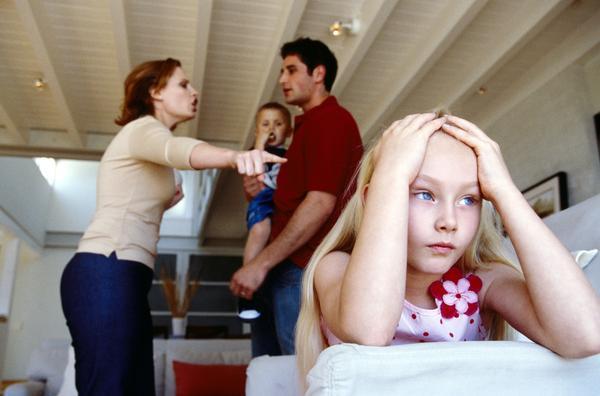 |
photo credit: www.bbc.co.uk
Children develop and perform best when they grow up in a loving, safe and stable environment. In an ideal situation, parents live harmoniously, love each other and work together in the shared, best interests of their children.
However, in reality, this may not happen all the time. There are times that parents can have conflict with each other. Parental conflict can becomes distressing for the family especially children. When parents argue in front of children, it is one of the most stressful events of childhood.
Conflict can be defined as a clash, a disagreement, and a state of disharmony.
Conflict can be positive as it can provide opportunity for a couple to work on themselves and each other. However, too much conflict can leave a negative impact on the family.
It is the hassles with the conflict and family arguments that best predict whether a child will be affected. Frequent, intense and poorly resolved conflict can lead to more problems in the child.
If parents deal with conflict in a caring and effective way, it provides opportunity for teens to watch it and learn communication skills that will be of benefit for them for the rest of their lives.
What are the effects of parental conflict on teens?
-
Negative emotions from the conflict are ‘infectious’. It will spill to other relationships.When parents get angry and argue with each other, they are more likely to become angry and irritable towards their children.
-
Teens notice parents’ poor communications during arguments and model their behaviour.
-
Teens feel anxious and less secure when they are aware that parents are not getting along. They fear that one parent will leave.
-
Parents have less time and energy to provide emotional support for the children. Marital fight often leads to distraction and sadness in parents. When parents’ mental health is affected, they become less effective in dealing with their children.
-
Teens from home with conflict have a more difficult time controlling their emotions. They are prone to anger and violence. They may use a defective style in solving problem with their peers. And practicing the same when they become parents themselves.
-
Affected teens may have low self-esteem, poor coping style, increase frustrations, leading to anxiety and depression.
-
Teens may avoid being home, or even try using drugs and alcohol.
-
School performance may suffer.
-
Teens can take side, or caught in the middle. Parents may undermine each other’s authority in front of the children.
 |
photo credit: everydaylife.globalpost.com
Parents are role models for the children on how to resolve problems. They can learn to manage conflict within their own lives. They learn problem-solving best in low-conflict homes.
Parental conflict itself may not cause harm to the kids, but what causing harm is whether the conflict is about the children, whether it takes place in front of the children, and whether the conflict is a positive experience or a negative one.
The challenge is for parents to learn to communicate better and effectively, reduce conflict between themselves and learn to solve problems in a positive manner. Parents, their children and the family will be happier.
| Last Reviewed | : | 29 Mei 2014 |
| Writer | : | Dr. Norharlina bte. Bahar |
| Accreditor | : | Dr. Nik Rubiah bte Nik Abdul Rashid |







